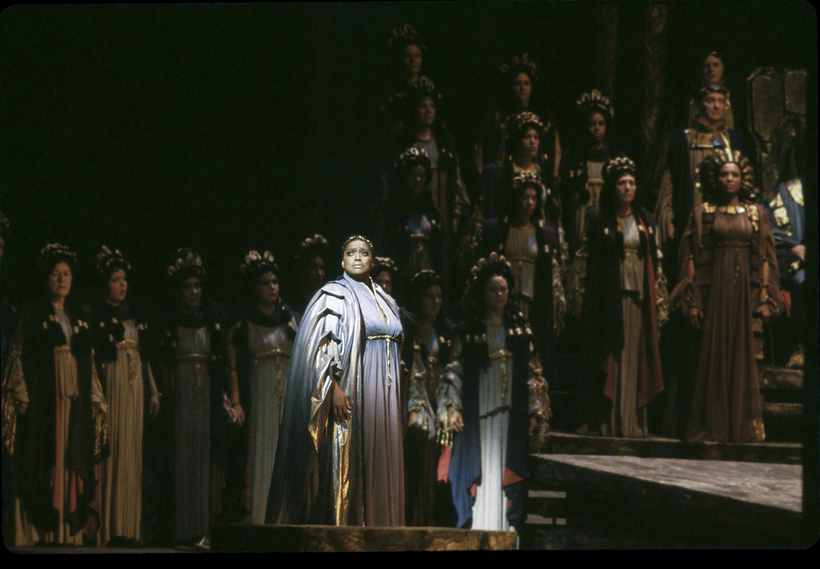The founding myth of imperial Rome, as set forth by Virgil in the Aeneid, is too vast a subject for a single opera. Adapting the epic’s most memorable sequences as Les Troyens, Hector Berlioz produced what amounts to not just one opera but a pair of them—so much so that until well into the 20th century, the complete work was performed, when at all, on two evenings. The first two acts recount the fall of Troy, foretold by Cassandra, whose prophecies no one believes. The concluding three unfold in Carthage, whose Queen Dido the Trojan chieftain Aeneas falls for but then abandons by order of the gods.
The occasional ambitious diva will assay both prima donna parts, sometimes even on the same evening, but at the Metropolitan Opera, such double headers have occurred only under duress. Thus in 1973, at the belated company premiere, the incandescent Shirley Verrett went on from Cassandra to replace her ailing colleague Christa Ludwig as Dido.
Ten years later, Jessye Norman and Tatiana Troyanos were scheduled to alternate as the seer and the sovereign, but Troyanos got cold feet and skipped out on Cassandra. So to close the run, Norman pulled a Verrett, scoring an easy 20 on a scale of 10. Filmed at a previous performance, the telecast of February 13 leaves that marathon to the imagination, but Norman’s Cassandra alone—the role of her Met debut, on opening night of the 1983 season—will justify your hosannas. Nor need excuses be made for Troyanos, an eloquent and majestic Dido. Plácido Domingo cuts the requisite heroic figure as Aeneas, whose high-flying phrases he rarely hazarded. Rafael Kubelik conducts. Have I mentioned the Trojan Horse?
Les Troyens is available for streaming on February 13 and 14
Matthew Gurewitsch writes about opera and classical music for AIR MAIL. He lives in Hawaii

